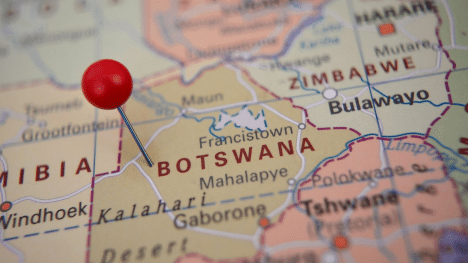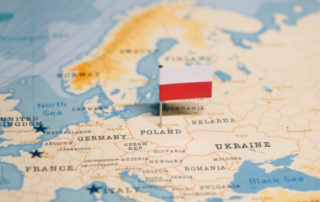
Botswana gained independence from Great Britain in 1966 and quickly formed a democratic government, one of the most stable in Sub-Saharan Africa ever since. Government stability and solid economic institutions have led to sustained economic growth, a relatively friendly business and investment environment, and the highest per capita income in Sub-Saharan Africa. Successful management of natural resources has led to increased social spending and better health and education outcomes than its neighboring countries.
Key to Botswana’s relative economic stability and success has been its ability to manage diamond revenue. Diamond revenue is the economy's foundation, accounting for 30% of national revenue and 70% of foreign exchange earnings. This differentiates them from other African countries, which are economically reliant on lucrative natural resource exports but have wildly different outcomes than Botswana.
The strength of its economic institutions is linked to Tswana culture (the ethnic majority in the country), its ability to last throughout colonial rule due to Great Britain’s hands-off approach in the region, and Tswana culture’s ability to integrate into the modern world economic framework.
Tswana culture has been known to deal with societal issues through a democratic-like process, deferring problem resolution to a broader base rather than consolidating power amongst a few individuals. In addition to the constraints on the power of the tribal leaders, other political elites have sought solid economic outcomes.
Upon its independence from Great Britain in 1966, Botswana quickly transitioned into a formal democracy and has since enjoyed one of the best functioning democracies in Africa. Although only one party has held most of the power, Botswana enjoys a multiparty democratic tradition that has helped maintain a relatively secure political environment, producing dividends for its economy.
The mining industry accounts for over 35% of the annual GDP, most of which is from diamonds. Diamonds also account for most of Botswana’s foreign exports and are a significant revenue stream for the government. Robust economic institutions and prudent fiscal policy have allowed Botswana to divert diamond revenue to further development. Successful management of diamond revenues has been a significant factor in Botswana’s relative political and economic successes. Other industries include manufacturing, financial and government services, and agriculture.
Despite Botswana’s economic success relative to most of Sub-Saharan Africa, they face systemic issues that threaten overall market stability. One major problem is structural unemployment, most recently measured at over 21% in 2021. This is mainly due to a lack of economic diversification, leaving few jobs for people not employed in the mining industry.
The lack of economic diversity also makes Botswana susceptible to market fluctuations based on the diamond demand. Like many countries, Botswana suffered greatly during the global pandemic but quickly rebounded the following year.
Botswana also has a moderately high inflation rate, reaching a decade-high in 2022 at over 12%. Economic growth outpacing inflation will be a significant concern for Botswana going forward, especially if economic growth stalls due to external shocks in the demand for diamonds or the depletion of mineral resources.
As mentioned previously, Botswana’s primary economic issue is the lack of diversity. The government has enacted Botswana Excellence: The Strategy for Economic and Diversification and Sustainable Growth. Part of this plan seeks to harness the untapped human capital in Botswana by supporting growth in e-commerce, education, financial services, logistics, and international trade.
In addition to diversification propelling economic growth is the increased demand for Botswanan diamonds due to Russia’s war with Ukraine. Russia has long been the world’s largest exporter of diamonds, and international sanctions against Russia and Russian firms have increased the demand for diamonds sourced elsewhere. The short-term outlook for the diamond market is very positive for Botswana.
Botswana’s diversification strategy and productive mining industry will open new business opportunities. Significant US export opportunities include mining equipment, computer hardware and software, energy equipment, financial and consulting services, aircraft equipment, pharmaceuticals, and telecommunications.
Botswana enjoys a relatively free economy, a sensible regulatory environment and rule of law, and open immigration policies. This allows them to recruit skilled workers from neighboring countries and around the world and to attract foreign investment.
With a growing, dynamic population, the Botswana market will also likely become more competitive over the next decade. Importantly, companies seeking to invest in Africa must also navigate significant risks when doing business in Africa.
US companies aiming to establish a foothold in emerging markets or seeking out a strategic trade location in Africa should strongly consider putting a due diligence plan in place to assess the basket of risks relevant to a specific investment opportunity. On the ground due diligence investigations to evaluate local business partnerships is essential. This includes making sure that country-specific analysis takes place before committing significant resources.



